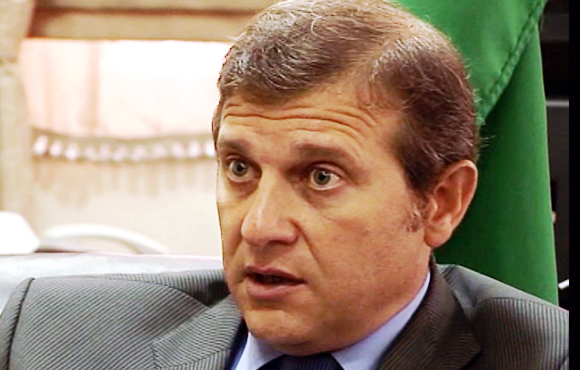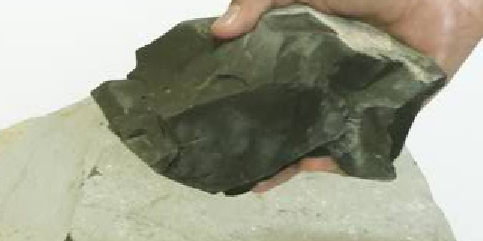Jordan Ministry of Energy
We import 96% of our energy from outside of Jordan, not only from Egypt; we import only the gas from Egypt for our electricity generation.
Interview with H.E. Khaled Al Irani, Minister of Energy and Natural Resources

Electricity is one of the most pressing concerns for Jordan as demand growth has been more than double that of primary energy in the past 2 years. What is the ministry’s agenda for 2010-11 and looking beyond?
We import 96% of our energy from outside of Jordan, not only from Egypt; we import only the gas from Egypt for our electricity generation. 96% of our energy, including oil is imported from outside and this puts a lot of burden on Jordan’s economy. Our new energy strategy is that by 2020, we need to diversify our sources of energy, we need to depend more on our local resources. That is why in the new strategy it says 10% of our energy mix by 2020 will be renewable;
Jordan has areas that are good for wind energy, areas that are good for solar, geothermal and other forms of renewable energy. We believe that we can achieve the 10% by 2020. 14% of that energy mix we are hoping will be from oil shale, whether direct burning to produce energy or to extract oil from oil shale.

Part of the energy mix will be nuclear, and of course we will have further exploration of our own oil and gas within Jordan. We have some concession agreements still in the pipeline. By achieving this we will decrease dependency on importing energy from outside.
As a former Minister of environment, how do you see the role of renewables in this strategy?
We believe renewables are a key part of our strategy; that’s why the first thing we did was to issue a special law on renewable energy and energy efficiency. We don’t only believe that renewable energy is an important source, but also energy efficiency.
36% of energy is consumed by the transportation sector, and we can tackle different sectors to improve our energy efficiency, we are working on that and it is part of the law. We are now doing the policies and procedures, feed-in tariffs and other forms that are attractive to the private sector to come and invest in renewable energy in Jordan.
We believe that by the end of this year, the information will be clearer for investors to come, but parallel to that, we have also tendered projects like wind projects. Most of our energy sector – or all now· -should be or will be an attraction to the private sector to come and invest.
How will this new legislation of energy sustainability, renewable energy and energy efficiency affect all the stake holders and all parties involved? What is your vision for this legislation?

We will be depending less on imported energy. We will depend on clean energy that we that we already have. Also, by investing in renewable energy, it is cleaner for the environment – no CO2 emissions and no pollution. We also see it as a productive industry where you can create jobs out of renewable energy.
We believe more than 3,000 jobs in the coming few years will be created from renewable energy.
“We believe that the GDP will increase 2.5 – 4% because of investment
in renewable energy. It will bring foreign direct investments; it will also bring new technologies.”
We have the resources, we have one of the best places for solar, and this is another attraction for research institutes to come and develop special, tailor-made solar panels for the region. The regional perspective is very important.
Europe now is committed to reduce more than 20% of their CO2 emission and Jordan can play a leading role in the region by producing renewable energy, not only to itself but also to export to Europe. We are part of the Desert Tech project which is meant to produce 20 Gwatts of renewable energy that will be sold to Europe.
I believe most of Europe is doing a lot in renewable energy and also in energy efficiency. This is something that we believe Jordan and the Arab countries in general are weak in and that is why in our renewable energy law we added a whole section about energy efficiency because we still spend more energy than we should with the different sectors. We have a very good program now with households to be launched soon about energy efficiency, as well as the industry, transportation and the other sectors.
The logic for renewable energy is there but how are you going to promote this?
Since we have passed the law, we are receiving lots of demand. First, however, we should develop the right structure, the right procedures, the right feed-in tariffs, and once it is there I can tell you lots of investors showed interest because Jordan has the potential. Jordan has already done the first IPP, and the second and is now going for the third.
 The power production in Jordan is stable, it is done by private sectors so there is less or no risks for investors to come to Jordan and invest in power production.
The power production in Jordan is stable, it is done by private sectors so there is less or no risks for investors to come to Jordan and invest in power production.
Renewable energy, solar in particular, at this stage will still require some subsidy and that is why we are careful in not committing our minister of finance until we are clear in terms of technology, in terms of feed-in tariffs, how we will do it, and whether or not there will there be cross subsidies. We are working now on all of these formulations and financial models.
Once that commitment in terms of subsidy or in terms of cross subsidy is passed through to the consumers, we can announce it hopefully the first quarter of next year. After that we will have an aggressive program in promoting renewable energy worldwide. Hopefully this will happen by the first quarter of 2011.
By the end of this year we will have a lot of information that will be announced on our website and your website. I believe we can aggressively promote full investment in renewable energy the first quarter of 2011.
What has been your major challenge as a ministry?
Definitely the major challenge is the cost, but we believe in the model we are preparing now that the prices of renewable energy will be going down and the prices of fossil fuels will clearly go up eventually, if not within the coming 5 years then within 10 years. It is an un-renewable resource. Renewable energy, with the improvement of technology, will go down in price and it is time to spend and invest now so we don’t lose that momentum.
We don’t want to come to a stage where we want investors to come here and invest in renewable energy but there is already a lot of demand in the world and we cannot bring them to Jordan. That is why in our plan, the attractive part is to try to invest now gradually where we establish no risks for investors and by the time we increase the mega watts, the technology will hopefully be cheaper and the consumers will be demanding more renewable energy. We who are planning for the future of the country should not be short sighted.
We understand where this is going, this is for the security of the country. If we had some cut offs of oil coming to Jordan for a few days, the prices would go up very quickly; if we didn’t have part of the gas we have now, the prices would go up; we cannot always be susceptible to those changes.
“Last year when the prices of fossil fuels went up to $150,
|that was way beyond the cost of renewable energy,
so I think we have a role in educating people about the
benefits of renewable energy and the benefits of investing now
in renewable energy.”
The king is very supportive about this idea, and in most of his visits to European countries he talks about renewable energy, and encourages European companies to come here. He also encourages European companies and Western companies to come invest not only in building renewable energy projects but also in manufacturing.
So Jordan can become a hub for the region and for the area not only in producing electricity, but producing the material and producing the technology.
What kind of minerals or natural resources does Jordan have? How do you intend to utilize them?
Jordan has one of the largest reserves of oil shale in the world. The challenge now is how to get it out. It was always expensive to take out oil from oil shale, but once the oil prices went up companies started to invest more in technologies to extract oil from oil shale.
There were many environmental challenges with that because you use lots of water, lots of emissions; there were also challenges related to the feasibility. We have done a concession agreement with Shell for deep oil shale; it is a long term agreement where they are testing new technologies that will hopefully be better environmentally.
I visited Estonia and saw a 1,600 mega watt power plant producing electricity from oil shale. I have seen the environmental commitment of that power plant, within the EU standards. We believe by the end of this year we will be receiving a feasibility study from the Estonians to tell us how much it will cost per kilo watt hour to produce electricity. So the oil shale part now is getting on track.